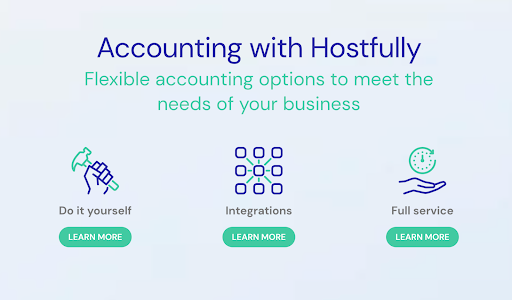Vacation rentals are a great way to bring in some extra or full-time income, but with rental income comes accountability. And whether you’re using Airbnb, Vrbo, Booking.com, or getting direct bookings, you want to be sure to go by the books— the dreaded income tax books that is. So before you spend all that glorious real estate money, read up on if and how self-employment tax applies to you and what deductions can help your business growth.
Self-employment taxes: hosts vs vacation rental management businesses
What is self-employment tax anyway?
Before we get into whether or not you’re required to pay self-employment tax, it’s important to understand what it is. While the IRS requires a whole slew of state and federal taxes, self-employment tax is one piece of operating a short-term rental business. If you legally qualify as a rental income owner or self-employed worker, you’ll need to file self-employment taxes which cover services like Social Security and Medicare as part of your 1099.
Tax laws differ for hosts and vacation rental management businesses. Let’s take a look at both, starting with hosts.
Hosts and self-employment tax
The 14-day rule
Let’s get the easy stuff out of the way. Taxpayers are NOT required to pay self-employment tax if your property is:
- Your personal residence or your vacation home
- Limited to 14-day maximum booking periods per year
For example, the 14-day rule could apply if you rent out your home property for a huge event once a year (Wimbleton or Christmas through New Years), in which case your rental activity is limited and you are not required to report your vacation rental property income. Be aware though that even one day over the 14-day limit necessitates declaring all of your income to the IRS. It also means that while you avoid the extra tax, you cannot take tax deductions for related expenses. Here’s a quick way of understanding if the 14-day rule applies to you: if you use your vacation rental property consistently throughout the year as a source of income (and likely if you’re reading this), you definitely will not qualify under the 14-day rule.
Schedule C vs Schedule E
Now comes the trickier part. Whether to file Schedule C or Schedule E.
Schedule C (business tax) is a killer because it requires both income and self-employment tax. This means not only do you need to pay income tax on your rental, you also are required to pay a whopping 15.3% self-employment tax. If you can avoid this tax, usually you should, however, if your rental business is your primary source of income, you definitely fall under Schedule C.
Schedule E (passive activity) is a much-preferred way to go but only if your rental activity can be considered a hobby. While you may still be subject to a Net Investment Income Tax (NIIT), the NIIT is capped at 3.8%—which is a whole lot easier to swing than 15.3% and will likely mean your net earnings are higher.
So when is Schedule C required?
Properties are subject to self-employment taxes and must be reported under Schedule C when on annual average, your bookings are 7 days or less. (So dig out those calculators and find those averages!)
It’s also important to note that if your short-term rental property is taking a loss and your home is in depreciation, it may actually be in your best interest to file under Schedule C.
“Substantial services”
To make things even trickier (and definitely more subjective), the IRS requires a Schedule C declaration if you provide substantial services. These are services that essentially fall in the hospitality business model. For example, you can provide Wi-fi under Schedule E, but concierge services are classified as Schedule C. You can make basic repairs (Schedule E), but you can’t prepare breakfast for guests (Schedule C). To avoid Schedule C taxation, you also cannot provide transportation, clean properties during occupancy, or offer experiences.
Hosting hacks
Want to be sure to avoid filing under Schedule C? Here are a couple of hacks to qualify as a rental activity instead of a business:
- While you want to be a responsive host, unless you’re happy to declare a career in hospitality, set up your short-term rental business with basic services guardrails to protect you. (No cooking, driving, or maid services during occupant’s stay, etc.)
- Only allow bookings that are 7-days or more. Just be mindful that this will certainly limit your renter pool.
Take a big-picture look at your rental income and long-term plan so that you remain consistent year-to-year (the IRS may be watching on strategic annual scheduling changes!).
VRMs + self-employment tax
Vacation property manager requirements
When it comes to vacation rental management companies, the rules change (surprise surprise)! You are NOT required to declare the income you pull in on your client’s behalf. You also aren’t liable for the expenses you pay to maintain an owner’s property. However, you are required to ensure the following:
- Declare your rental income, commissions, and fees from your property owners
- Provide a 1099 form to each property owner you manage. The 1099 will include the net profit the owner made that year which they’ll use to file their taxes.
- For any expenses over $600/year, you also need to supply any contractors or independent professionals with a 1099 form. An exception to this rule would be if you hire a cleaning company instead of an independent cleaning person.
- You will need to provide your property owners and contractors with their 1099s either:
– Directly getting the forms to them by 1/31 of the following year. So for 2023 taxes, you should provide 1099s no later than 1/31/24. The IRS will also need the same documents by 2/28 of that year.
– File automatically to the IRS. Note: If you have 250 or more 1099s to remit, you will need to file automatically.
How to limit those tax headaches
Short-term rental hosts and property managers will usually benefit from an assisted hand in navigating rental property taxes. Here are the two options for reducing those tax-induced headaches and focusing on your rental properties.
Option 1: Hire a reputable accounting firm
Any knowledgeable and experienced accounting firm or CPA with experience providing services related to tax preparation will be able to guide you through tax deductions, liabilities, and laws so you can file accurately.
Option 2: Use a PMS that offers tax reporting and business reviews
Alternatively, some PMS systems like Hostfully offer flexible accounting options which allow you to export your data and integrate your account. Additionally, Hostfully offers software integrations with Ximplifi, Extenteam, Quickbooks, Sage Intacct, and more. These integrations let you import, configure, and manage your accounting (including scheduling and sending your reports to team members), or offload your reports to accounting professionals.

Conclusion
Whether it’s a hobby or a full-time job, on Airbnb, Vrbo, or direct booking, short-term rentals can be a profitable and exciting venture. Determining your business needs and familiarizing yourself with real estate self-employment tax laws is critical, however. Tax laws are complex and it’s always valuable to consult with a tax professional. As confusing as the laws may be, additional services like Hostfully can help you adhere to tax laws, avoid tax liability, and protect your hard-fought (or passively earned!) rental income.
You can also explore the Tips on Rental Real Estate Income, Deductions, and Recordkeeping from the IRS.
FAQs
Do Airbnb and Vrbo report income to the IRS?
Depending on how much rental income you bring in, OTAs like Airbnb and Vrbo are likely to issue you a 1099-K or provide an Earnings Summary. You should always be proactive about your taxes and follow up with any agencies or services you use.
How do I learn about my state’s tax laws?
Good thing you asked! Here’s a handy state tax law guide.
What else do I need to know about vacation rental income taxes?
For more information on taxes, check out Hostfully’s All You Need To Know About Vacation Rental Taxes (Including Deductibles) article.








